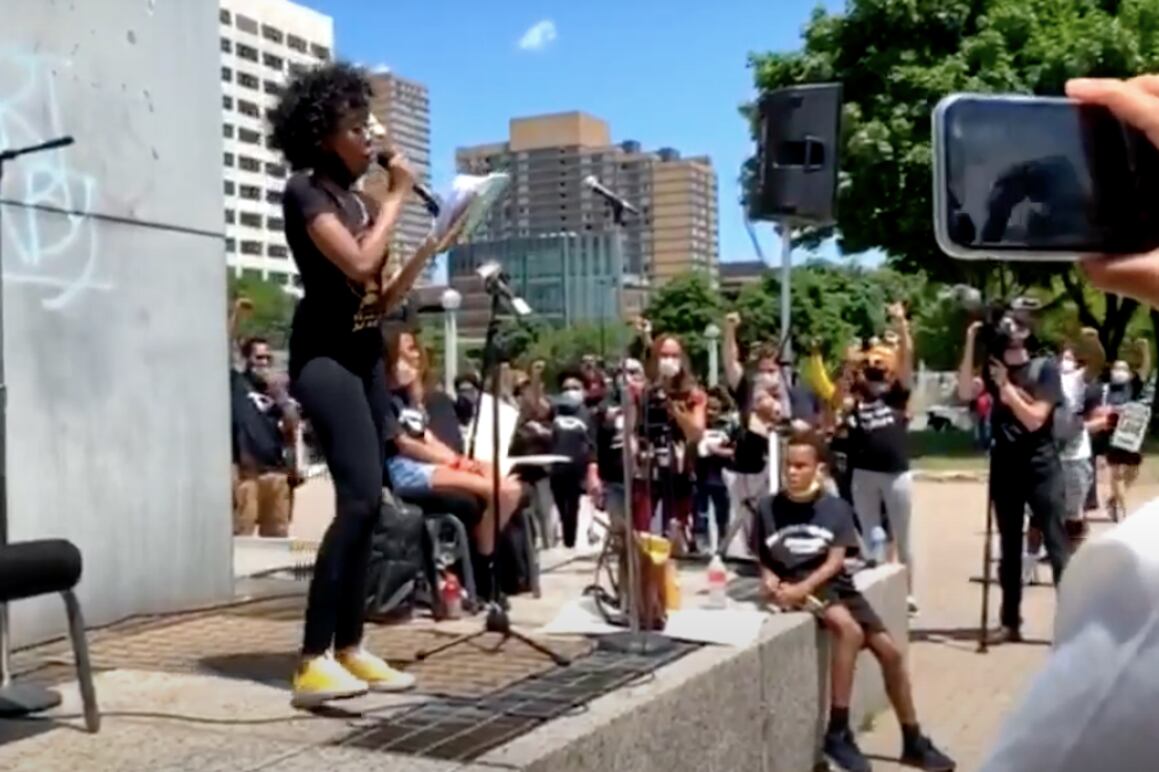Christian Jones, a student at Jalen Rose Leadership Academy, plans to move to Tennessee to attend college. His mother is proud — and terrified that he’ll get pulled over by police on the drive there.
Makiah Ship, a student at Early College of Excellence, has a 21-year-old Black brother who lives in another state.
“I fear for him every day,” she said, speaking about police violence against Black people. “We need safety. There’s nothing else to it.”
Their words pointed to problems that have long been familiar to Black families, but which took on even more urgency after a white police officer killed George Floyd, a Black man, in Minneapolis.
Jones and Ship spoke to their peers from charter schools across Detroit on Friday to protest anti-Black violence. It was the 15th straight day of protests in Detroit over Floyd’s death, police brutality, and systemic racism.
Holding signs that read “Let us breathe” and “Black lives matter,” students, parents and teachers from several Detroit charter schools marched almost two miles from Detroit Academy of Arts and Sciences to Hart Plaza downtown, where 10 students gave speeches including Jones and Ship.
The march lasted roughly from noon to 2 p.m. Students joined the march from Detroit charter schools including Detroit Edison Public School Academy, University Prep schools, Escuela Avancemos, and Jalen Rose Academy.
The demonstration was organized by officials at the Detroit Academy of Arts and Sciences, and was the second in two days held by schools in Detroit. The city’s traditional district, Detroit Public Schools Community District, held a rally Thursday afternoon that drew a link between racial injustice and inequitable school funding.
The theme of the Friday march — “One Nation” — was drawn from “One Nation Under a Groove,” a 1970s tune by Funkadelic, said Maurice Morton, CEO of Detroit Academy of Arts and Sciences, a K-8 charter school that enrolls over 1,000 students. The DAAS choir covered the song in a video that has been viewed more than 1.1 million times.
“Of course [the theme is] anti-police brutality and anti-racism,” Morton said. “But the main theme is, ‘Let’s all unite as one nation.’ It’s so important that everyone come together.”
Dozens of demonstrators streamed into Hart Plaza to the sound of “Harvest for the World,” a 1970s tune by the Motown group The Isley Brothers. Most wore masks, though few stayed 6 feet from other people.
Heaven Bradley, a student in the University Prep charter network, told the crowd that racism in the U.S. goes far beyond police brutality against Black people.
“Police brutality barely scratches the surface,” she said. “The problem is white supremacy. Black people are tired of being tired. We are not just fighting for George Floyd.”






